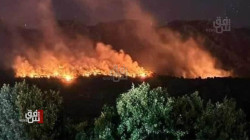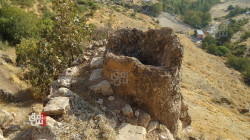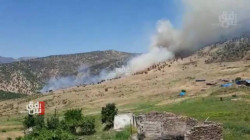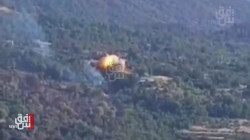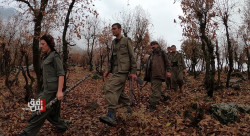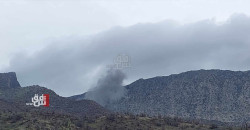Residents block road in protest against Turkish shelling in Duhok
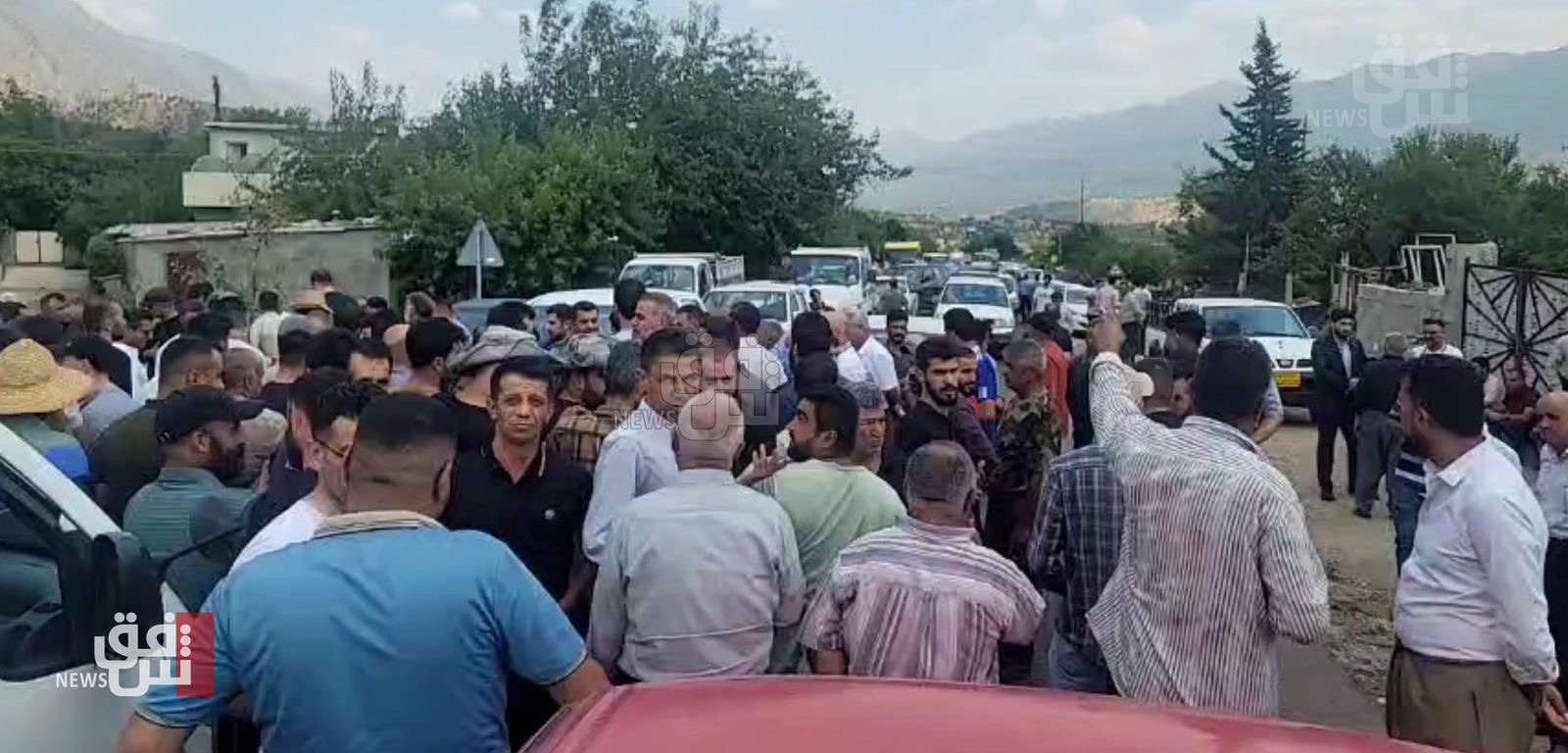
Shafaq News/ On Wednesday, residents of the village of Koherzi closed the main road between Al-Amadiya district and the Deraluk sub-district in Duhok governorate, protesting against the Turkish artillery shelling that hit their village.
Fortunately, no casualties were reported.
One of the demonstrators informed Shafaq News Agency that the decision to block the main road was a response to the repeated artillery bombardment targeting their village and other villages in the area due to the ongoing conflict between the Turkish military and the Kurdistan Workers' Party (PKK).
The protesters called on the relevant authorities to intervene urgently to stop the shelling in their residential areas.
This escalation is linked to the Turkish military's expansion of its operations in the area over the past two weeks, citing the objective of combating PKK elements that have been active in the region for decades.
Areas in Al-Amadiyah and some areas of the Kurdistan Region are subjected to almost daily airstrikes, targeting PKK elements and leaders present there.
The Turkish Armed Forces have been conducting cross-border military operations against the PKK in Northern Iraq since the 1980s.
In July 2015, a two-and-a-half year-long ceasefire broke down, and the conflict between Ankara and militants of the PKK – recognized as a terrorist organization by Turkiye, the US, Russia, and the European Union – entered one of its deadliest chapters in nearly four decades.
Since that date, the conflict has progressed through several phases. Between roughly 2015 and 2017, the violence devastated communities in some urban centers of Turkiye's majority Kurdish southeast and – at times – struck into the heart of the country's largest metropolitan centers. From 2017 onward, the fighting moved into rural areas of Turkiye's southeast.
As the Turkish military pushed more militants out of Turkiye, by 2019, the conflict's concentration shifted to northern Iraq and northern Syria, where the Turkish army has established several military bases at strategic points in the Matin mountain range, citing the expulsion of Kurdistan Workers' Party militants as justification.
In a TV interview last February, the President of the Kurdistan Region, Nechirvan Barzani, was asked if Turkiye coordinates with Erbil when launching strikes against PKK in the region; Barzani explained, "The PKK is a severe headache for the Kurdistan Region and Iraq as well. They do not value the legitimacy of the Kurdistan Region's institutions and threaten Turkiye from our territories. While we completely reject the principle of turning the lands of the Kurdistan Region into a source of threat to our neighbors, whether this neighbor is Turkiye or Iran."
He rejected that PKK, as opponents of Tehran and Ankara, "make the Kurdistan Region a safe area to create problems for these countries. It is very unfortunate that the PKK plays a very negative role in this context and uses the mountainous areas of the Kurdistan Region and tries to create problems for Turkiye. This is absolutely unacceptable from our side."
On many occasions, Ankara urged the Iraqi government to label the PKK a "terrorist" organization. On the other hand, Baghdad frequently called for an end to the presence of Turkish military forces on its land, demanding that Turkiye stop its attacks and respect Iraq's sovereignty.
